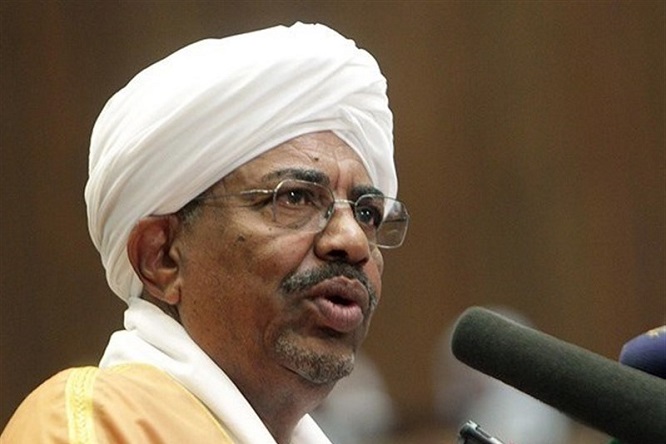Sudan’s longtime ruler Omar al-Bashir appeared to have been removed as president on Thursday following months of on-and-off popular protests that culminated in clashes between his loyalist security branches and the uniformed armed forces, reports said.’
During a tense dramatic morning that saw the country’s state broadcaster seized by the military and protesters mass in front of the armed forces headquarters, Bashir’s position remained unclear. The army alerted the public in a 5 a.m. statement that warned of an impending announcement.
Reports emerged that the airport in Khartoum had been seized, Bashir and other senior officials had been arrested, and that a transitional council headed by the defense minister, Ahmed Awad Ibn Auf had been formed, according to sources cited by Dubai-based Al-Arabiya.
Doha-based Al Jazeera reported that armed forces informed Bashir “he was no longer president”
None of the reports could be confirmed. For hours state television played patriotic and martial music as the nation of 41 million people waited and thousands amassed at the main protest site outside the military headquarters in Khartoum.
Reports of Bashir’s alleged ouster come amid a popular uprising against his rule that has seen thousands take the streets across the country. The largely peaceful protests have escalated in recent days, as different armed government forces engaged in deadly clashes.
As news of the statement spread, people flooded the streets in Khartoum in celebration, according to social media reports and witnesses on the ground.
Bashir took control after a coup in 1989 and became President in 1993. He stands accused of conducting an campaign of ethnic cleansing in the country’s Darfur region, and was nearly arrested in 2015 while visiting South Africa.
The protesters started as a demonstration against the rising costs of living but escalated into a push for the Bashir’s removal from office, with mass rallies and sit-ins outside the presidential compound and army headquarters. In February, Bashir declared a year-long state of emergency in response to the protests.
This week’s sit-in had grown into one of the biggest rallies since the uprising began, with crowds braving temperatures of more than 110 degrees Fahrenheit (43 degrees Celsius) to camp out in the streets of the capital.
On Tuesday, members of the Sudanese army moved in to protect protesters in Khartoum, after national security forces attempted to break up the third day of a mass sit-ins.
Earlier in the week, the mood among protesters outside the compound had verged on victorious, with people chanting thawra (revolution) and waving the national flag aloft as soldiers looked on, footage from the scene showed.
Photos captured protesters sitting atop military vehicles and handing out water bottles, as others posed for selfies with members of the armed forces, flashing V-for-victory gestures.
Sudan’s government has reported some 32 fatalities since the protests began earlier this year, including three security personnel, but doctors and opposition activists suggest the toll is 78, excluding the military.
More than 3,000 people have been arrested since protests began in December, based on testimony gathered from activists, lawyers and victims. Many have been taken to secret detention sites known as ghost houses, which the government says don’t exist, and where detainees say they face physical and psychological torture.
Sudan has sought to censor news coverage of protests, and journalists found reporting on the demonstrations risk life imprisonment and the death penalty.
LINK: https://www.ansarpress.com/english/10737
TAGS:































 online news tv
online news tv




